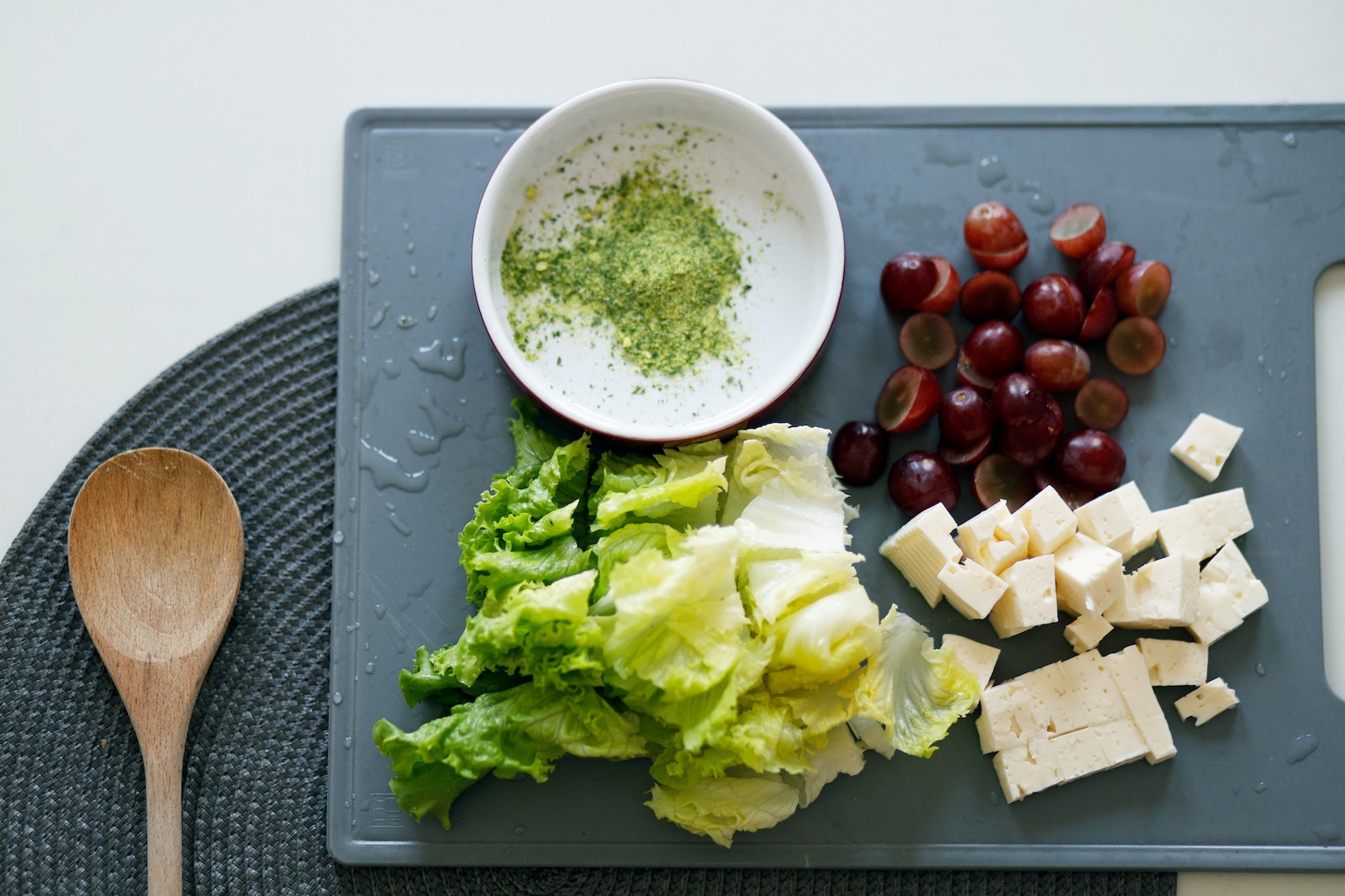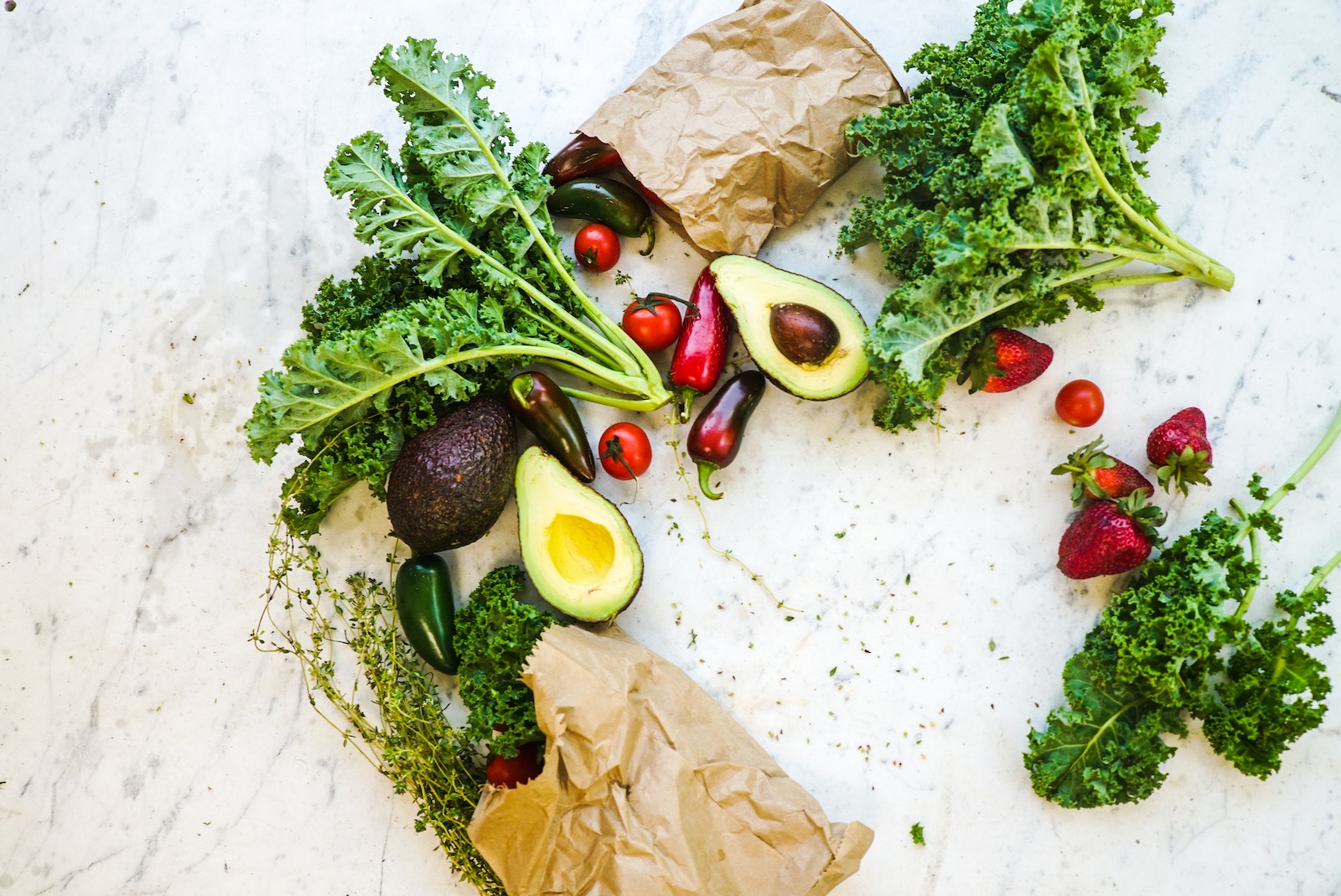Keto for vegetarians is a unique way of eating that combines the principles of a vegetarian diet with those of a ketogenic diet. This diet involves reducing carbohydrates and increasing healthy fats and plant-based proteins, with the goal of putting the body into a state of ketosis, where it burns fat for energy instead of glucose. This way of eating offers many health benefits, including weight loss, improved energy levels, and better overall health.
Foods to Eat on a Vegetarian Keto Diet
When it comes to following a keto diet, it’s all about finding the right balance of protein, fat, and carbohydrates. As a vegetarian, your options for protein sources are limited, but that doesn’t mean you can’t enjoy a variety of delicious and nutritious foods.
Some of the best foods to include in your meals on a vegetarian keto diet include:
- Leafy greens: Spinach, kale, and lettuce are great sources of vitamins and minerals, and they’re also low in carbohydrates.
- Avocado: This superfood is a great source of healthy monounsaturated fats, which are important on a ketogenic diet.
- Nuts and seeds: Almonds, walnuts, chia seeds, and flax seeds are all excellent sources of healthy fats, fiber, and protein.
- Eggs: Eggs are a versatile and inexpensive source of high-quality protein, and they can be prepared in a variety of ways.
- Cheese: Cheese is a good source of fat and protein, and it can be used to add flavor and creaminess to your meals.
- Coconut oil: Coconut oil is a great source of medium-chain triglycerides (MCTs), which are quickly metabolized by the body and converted into ketones.
- Tofu and tempeh: These soy-based products are excellent sources of plant-based protein, and they can be used in a variety of dishes.
Challenges of Following a Vegetarian Keto Diet
One of the biggest challenges of following a ketogenic diet as a vegetarian is getting enough protein. Since you can’t eat meat, you’ll need to get creative with your protein sources. Some other challenges you might face include:
- Limited food options: Since many of the foods that are high in fat and low in carbohydrates are animal-based, you might feel like you’re running out of options.
- Difficulty meeting your nutrient needs: It can be challenging to get all of the vitamins and minerals you need from a limited number of foods, especially if you’re not eating dairy or eggs.
- Social isolation: If your friends and family don’t understand your diet, it can be difficult to stick to it when you’re eating out or at social gatherings.
Overcoming the Challenges of Vegetarian Keto
Despite the challenges, following a ketogenic diet as a vegetarian can be a fulfilling and delicious way of eating. Here are some tips for overcoming the challenges and sticking to your diet:
- Plan your meals in advance: Having a clear plan for what you’re going to eat each day will help you stay on track and avoid falling into old, unhealthy habits.
- Get creative with your recipes: Experimenting with new ingredients and cooking techniques will help you find new, delicious foods to eat and keep you from getting bored.
- Seek support from others: Join a keto-friendly online community, or find a friend who is also following a ketogenic diet. Having someone to share your experiences with can make the journey easier.
What Does the Science Say?
The science is clear: a vegetarian ketogenic diet can offer numerous health benefits. For starters, it can lead to significant weight loss by reducing your calorie intake and promoting fat burn. This is because the diet involves cutting out most carbohydrates, which are often a major source of calories for many people. Studies have also shown that a keto vegetarian diet can improve blood sugar control, reducing the risk of type 2 diabetes and other related health problems. And, many people report increased energy levels and improved mental clarity when following this diet, thanks to the steady supply of energy from healthy fats and high-quality proteins.
Are there any health concerns for keto vegetarians?
Like any diet, there are some potential health concerns to be aware of when following a vegetarian ketogenic diet. One of the main concerns is the risk of nutrient deficiencies, particularly when it comes to vitamin B12, iron, calcium, and omega-3 fatty acids. These are all nutrients that are typically found in animal products, so it’s important to make sure you’re getting enough of them through other sources, such as fortified foods or supplements. Additionally, some people may experience the “keto flu” when transitioning to this diet, which can include symptoms like headaches, fatigue, and nausea. However, these symptoms usually subside within a week or two as your body adjusts to the new way of eating. To avoid these health concerns, it’s important to work with a healthcare professional to ensure you’re getting all the nutrients you need and to make any necessary adjustments to your diet as needed.
What are the different types of vegetarians?
When it comes to vegetarianism, there are several different diets to choose from. The three most common types are lacto-ovo vegetarian, lacto vegetarian, and vegan. A lacto-ovo vegetarian diet includes eggs and dairy products, while a lacto vegetarian diet includes dairy but excludes eggs. A vegan diet, on the other hand, excludes all animal products, including dairy, eggs, and honey. Each of these diets can be adapted to be compatible with a ketogenic diet by focusing on high-fat, low-carb plant-based foods and supplementing as necessary to ensure adequate nutrient intake.
Which vegetarian diets work best with keto?
When it comes to combining a ketogenic diet with a vegetarian diet, a lacto-ovo vegetarian diet is often the easiest to follow. This is because eggs and dairy are great sources of high-quality protein and healthy fats, making it easier to meet your nutritional needs on this diet. However, a vegan diet can also be compatible with a ketogenic diet with some careful planning and supplement use. The key is to focus on plant-based sources of fat, such as avocados, coconut oil, and nuts, while also including plenty of low-carb vegetables to meet your fiber needs. To make the necessary adjustments to your diet, it’s important to work with a healthcare professional to ensure you’re getting all the nutrients you need and to make any necessary adjustments to your diet as needed.
5-step action plan for eating a vegetarian keto diet
Step One: Reduce Carbohydrates
The first step to following a vegetarian ketogenic diet is to reduce your carbohydrates. This means saying goodbye to high-carb foods like bread, pasta, and sweets and saying hello to low-carb, veggie-packed options. Leafy greens and other vegetables are great options for replacing carbs in your diet.
Step Two: Include Plant-Based Protein
Incorporating a source of plant-based protein into each meal is key for maintaining a healthy, balanced vegetarian keto diet. Tofu, tempeh, and lentils are all excellent options for adding protein to your meals.
Step Three: Veggies, Veggies, Veggies!
Eating at least 1 to 3 servings of vegetables twice a day is a must when following a vegetarian keto diet. Not only will this help you reach your daily fiber goals, but it will also provide you with essential vitamins and minerals. Mix it up by incorporating a variety of colorful veggies into your meals.
Step Four: Use Healthy Oils
When cooking and making salad dressings, use healthy oils like olive oil and coconut oil. These oils not only add flavor to your meals, but they also provide essential healthy fats.
Step Five: Spice It Up
Finally, don’t be afraid to experiment with different herbs and spices to add flavor to your meals. From rosemary to cumin, there are so many options to choose from. Get creative and make your meals enjoyable!
Remember, following a vegetarian ketogenic diet can be a fun and delicious journey when you take these five steps into consideration.
How to avoid nutrient deficiencies on a vegetarian keto diet
Going on a vegetarian ketogenic diet can be a healthy and sustainable way to lose weight, improve blood sugar control, and boost energy levels. However, it’s important to be aware of potential nutrient deficiencies that may arise from limiting certain food groups. Here’s how to avoid the most common nutrient deficiencies on a vegetarian ketogenic diet:
- Iron: Plant-based sources of iron, such as leafy greens, nuts, and seeds, can be part of a healthy vegetarian keto diet. To ensure adequate iron intake, it’s also important to include vitamin-C rich foods, as they help with iron absorption.
- Vitamin B12: Vitamin B12 is only found in animal-based foods, so it can be a challenge for vegans and vegetarians to get enough of it. Fortified plant-based milks, yeast extracts, and supplements are great options to get enough B12.
- Calcium: Leafy greens, such as kale, collard greens, and spinach, as well as nuts and seeds, are good sources of calcium. If you’re concerned about getting enough calcium, consider taking a supplement or eating fortified foods, like fortified plant-based milks.
By being mindful of these essential nutrients and incorporating fortified foods or supplements as needed, you can avoid any potential deficiencies and enjoy the benefits of a vegetarian ketogenic diet.
Delicious vegetarian keto recipes
Vegetarian-keto Breakfasts
- Tofu Scramble: In a pan, cook diced onion, bell peppers, and mushrooms. Add crumbled tofu and stir until heated through. Season with turmeric, salt, and black pepper to taste. Serve with a side of avocado and a low-carb whole grain toast.
- Avocado and Egg Breakfast Bowl: Cut an avocado in half, remove the pit, and fill the hole with a fried egg. Sprinkle with salt, pepper, and red pepper flakes. Serve with a side of cherry tomatoes and sautéed spinach.
- Low-carb Smoothie Bowl: Blend almond milk, frozen berries, a scoop of protein powder, and a handful of spinach until smooth. Top with sliced almonds, coconut flakes, and a drizzle of almond butter.
Vegetarian-keto Meals
- Vegetarian Keto Chili: In a large pot, sauté diced onion, garlic, and jalapeno in olive oil. Add diced zucchini, eggplant, and mushrooms. Stir in canned tomatoes, chili powder, and cumin. Let simmer for 10-15 minutes. Serve with a dollop of sour cream and grated cheese.
- Tofu and Vegetable Stir-fry: In a pan, cook diced tofu in sesame oil until browned. Remove from the pan and set aside. In the same pan, cook diced broccoli, carrots, and red bell pepper until tender. Add the cooked tofu back to the pan and stir in a sauce made from soy sauce, hoisin sauce, and cornstarch. Serve over a bed of cauliflower rice.
- Portobello Mushroom Burger: Brush sliced portobello mushrooms with olive oil and grill until tender. Serve on a low-carb bun with lettuce, tomato, and avocado. Spread with a garlic aioli made from mayonnaise, garlic, and lemon juice.
Staying keto vegetarian long term
Staying on a vegetarian ketogenic diet long term requires effort and planning, but with the right tools and mindset, it can be a sustainable and enjoyable way of eating. Here are some tips to help you stay committed to a vegetarian keto diet in the long term:
- Plan your meals in advance: Planning your meals ahead of time can help you avoid last-minute decisions that may lead to unhealthy eating choices. Having a plan in place can also make grocery shopping easier and more efficient.
- Keep variety in your meals: Eating the same foods every day can quickly lead to boredom, so it’s important to switch things up and try new recipes and ingredients. Experiment with different spices, herbs, and cooking methods to add flavor and excitement to your meals.
- Eating out: Dining out can be challenging when following a vegetarian ketogenic diet, but with some preparation, it can be done. Research restaurants beforehand to find options that fit your dietary needs and consider ordering dishes with plenty of low-carb vegetables and a source of protein.
- Stay hydrated: Drinking plenty of water is essential for maintaining good health and for keeping you feeling full and satisfied. Aim for at least 8 glasses of water a day.
- Find a supportive community: Having a support system can be invaluable when trying to stick to a new way of eating. Consider joining a local vegetarian keto group or an online community to connect with others who are following the same diet and share your experiences and challenges.
- Stay motivated: Staying motivated to continue following a vegetarian ketogenic diet can be challenging, but setting achievable goals and tracking your progress can help. Whether it’s losing weight, improving blood sugar control, or having more energy, focusing on the benefits of the diet can help keep you on track.
With these tips and a little effort, following a vegetarian ketogenic diet can be a sustainable and enjoyable way of eating that can provide numerous health benefits.
The vegetarian ketogenic diet is a great option for those looking to improve their health while still following a vegetarian lifestyle. By cutting back on carbohydrates and increasing healthy fats and plant-based proteins, this diet can help promote weight loss and improve overall health. With the right planning and preparation, it is possible to enjoy a wide variety of delicious, nutritious, and satisfying meals on a vegetarian ketogenic diet. So, whether you are looking to improve your health, lose weight, or simply try a new way of eating, consider giving the vegetarian ketogenic diet a try.
Frequently Asked Question (FAQ)
1. What are some vegetarian keto-friendly snacks?
Vegetarian keto-friendly snacks: Some good options for keto-friendly vegetarian snacks include nuts like almonds and macadamia nuts, cheese and vegetable sticks, low-carb protein bars, and fat bombs made with coconut oil or nut butter.
2. Can you eat beans on a vegetarian ketogenic diet?
Beans on a vegetarian ketogenic diet: Beans are a good source of protein but also contain carbohydrates, so they may not be suitable for everyone following a strict ketogenic diet. However, if you’re following a more moderate approach to the diet, you may be able to include limited amounts of certain types of beans in your diet.
3. Is it possible to get enough protein on a vegetarian ketogenic diet?
Protein on a vegetarian ketogenic diet: Yes, it is possible to get enough protein on a vegetarian ketogenic diet. Some good sources of plant-based protein include tofu, tempeh, nuts, seeds, and legumes such as lentils and chickpeas. You can also supplement with protein powders made from plant-based sources like pea or rice protein.
4. What are some keto-friendly vegetarian dinner ideas?
Keto-friendly vegetarian dinner ideas: Some good options for keto-friendly vegetarian dinners include a vegetarian chili made with tofu, a stir-fry with low-carb vegetables and tofu, a roasted vegetable and cheese plate, and a mushroom and cheese omelet.
5. Is a vegetarian ketogenic diet suitable for athletes?
Vegetarian ketogenic diet for athletes: A vegetarian ketogenic diet can provide enough energy and nutrients for athletes, but it may take some time to adjust to the dietary changes. It’s important to pay close attention to your protein and calorie intake and make sure you’re getting enough of all the essential nutrients you need to support your athletic performance. You may also want to consider adding a keto-friendly sport supplement to your diet to support your athletic goals.











Leave a Reply